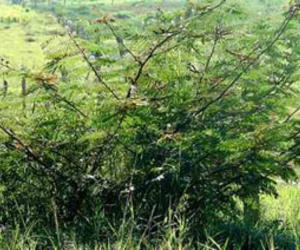Cuban Specialists Worried about Invading Exotic Plants
- Submitted by: manso
- Society
- 07 / 02 / 2011

2011.06.30 - 19:14:30 / radiorebelde.icrt.cu. Havana, Cuba.- More than 300 foreign exotic species inhabit the Cuban ecosystems and other 200 will potentially invade them in the near future, specialists of the Cuban Botanical Society (SOCUBOT) recently warned.
Among the most commonly-found “outsiders” are the marabou bush, Malay apple, ipil-ipil, casuarina, African tulip, melaleuca, albizia, and even the mariposa flower.
Most of them come from Africa and Australia and were introduced in Cuba before 1959 to be used mostly for ornament, timber and pasture, SOCUBOT vice president Alejandro Palmarola told ACN.
The specialist said the natural area penetrated by such uninvited guests is vast and noted that many experts consider that the damage is irreversible.
Palmarola said controlling and evaluating how the foreign plants were brought in, whether by chance or on purpose, is the first action to be taken. He added that environmental education among locals is also vital for the preservation of the autochthonous flora.
Cuban specialists met at the National Botanical Garden for the second national workshop on invading plants seeking to establish a methodology for classifying the species found in the island and lay a strategy to stop the spreading of the most aggressive ones.
However, the specialists pointed out that some of them are included in reforestation and gardening plans, even in important areas for the Cuban biological diversity.
(ACN)
Comments